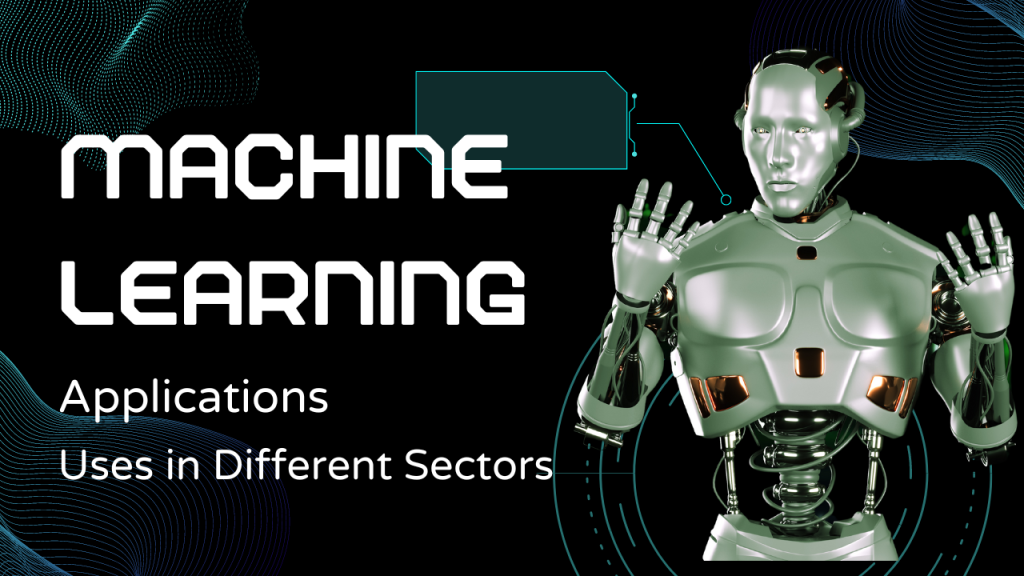
1. How Machine Learning is Revolutionizing Healthcare
Machine learning (ML) is transforming the healthcare industry by enabling more accurate diagnoses, personalized treatments, and efficient administrative processes. Advanced algorithms can analyze vast amounts of medical data, including patient histories, imaging data, and genetic information, to detect patterns and predict outcomes. This capability is instrumental in early disease detection, predicting patient responses to treatments, and even discovering new drugs.
Key Applications:
- Diagnostics: ML models help in detecting diseases like cancer, heart disease, and neurological disorders by analyzing medical images and patient data.
- Personalized Medicine: By analyzing genetic data and medical histories, ML algorithms can suggest personalized treatment plans.
- Predictive Analytics: ML can predict patient outcomes, such as the likelihood of readmission, helping healthcare providers to take preventive measures.
2. The Role of Machine Learning in Financial Services
In the financial sector, machine learning enhances decision-making, risk management, and customer experience. Financial institutions use ML algorithms to analyze market trends, assess credit risk, and detect fraudulent activities. These applications not only improve efficiency but also ensure better compliance and security.
Key Applications:
- Fraud Detection: ML models can identify unusual patterns in transaction data, helping to detect and prevent fraudulent activities.
- Credit Scoring: By analyzing a wide range of data points, ML algorithms can more accurately assess the creditworthiness of individuals and businesses.
- Algorithmic Trading: ML models can analyze market data in real-time, executing trades based on patterns and predictions, thus optimizing investment strategies.
3. Using Machine Learning for Predictive Analytics in Marketing
Marketing has been significantly impacted by machine learning, especially in the area of predictive analytics. By analyzing consumer data, ML algorithms can predict future behaviors, allowing businesses to tailor their marketing strategies. This includes optimizing ad campaigns, personalizing content, and enhancing customer segmentation.
Key Applications:
- Customer Segmentation: ML can group customers based on their behaviors and preferences, allowing for targeted marketing.
- Personalization: Algorithms can recommend products and services based on individual customer data, increasing engagement and sales.
- Churn Prediction: Predictive models can identify customers who are likely to leave, enabling proactive retention strategies.
4. Machine Learning in Autonomous Vehicles: An Overview
Machine learning is a cornerstone of the development of autonomous vehicles. By processing data from sensors, cameras, and other sources, ML algorithms enable vehicles to navigate and make real-time decisions. These capabilities are essential for tasks such as obstacle detection, path planning, and traffic prediction.
Key Applications:
- Object Detection and Classification: ML models can recognize and classify objects in the vehicle’s environment, such as pedestrians, vehicles, and traffic signs.
- Path Planning: Algorithms calculate the optimal route by considering traffic conditions, road obstacles, and destination requirements.
- Adaptive Control Systems: ML enables vehicles to adapt to changing driving conditions, such as weather or traffic patterns, ensuring safety and efficiency.
5. Enhancing E-commerce with Machine Learning: From Recommendations to Customer Support
In the e-commerce industry, machine learning plays a critical role in improving customer experiences and operational efficiency. ML algorithms are used for personalized product recommendations, optimizing supply chain logistics, and providing automated customer support.
Key Applications:
- Recommendation Engines: ML algorithms analyze customer data to suggest products, increasing sales and customer satisfaction.
- Inventory Management: Predictive analytics helps optimize inventory levels, reducing costs and ensuring product availability.
- Chatbots and Customer Support: Natural language processing (NLP) powered by ML enables chatbots to handle customer inquiries, providing instant support.
How MITSDE’s Machine Learning Course Provides Solutions Across Sectors
At MIT School of Distance Education (MITSDE), we offer a comprehensive machine learning course designed to equip students with the knowledge and skills needed to excel in various industries. Our curriculum covers essential ML concepts, tools, and applications, with a strong focus on practical implementation.
Course Highlights
- Foundational Knowledge: Understand the fundamentals of machine learning, including supervised and unsupervised learning, neural networks, and deep learning.
- Industry-Specific Applications: Explore how machine learning is applied in healthcare, finance, marketing, automotive, and e-commerce, with real-world case studies.
- Hands-On Experience: Gain practical experience through projects and assignments that simulate real-world problems, using popular ML tools and frameworks like TensorFlow, PyTorch, and scikit-learn.
- Ethics and Best Practices: Learn about the ethical considerations and best practices in machine learning, ensuring responsible and effective use of technology.
Why Choose MITSDE for Machine Learning?
- Flexible Learning: Our online course structure allows you to learn at your own pace, balancing your studies with personal and professional commitments.
- Expert Faculty: Learn from experienced instructors who bring industry insights and practical expertise to the classroom.
- Career Support: Benefit from career guidance and support, including resume building, interview preparation, and job placement assistance.
MITSDE’s machine learning course is ideal for professionals looking to upskill, career changers seeking to enter the field, and students aiming to gain a competitive edge in the job market. By mastering machine learning, you can unlock opportunities across various sectors, driving innovation and growth in your career.



